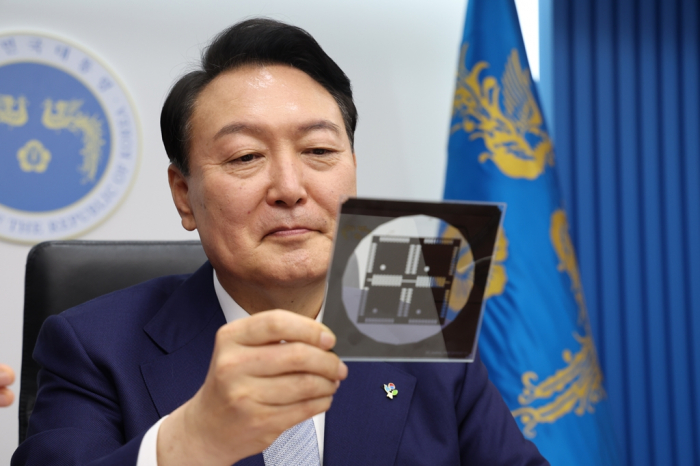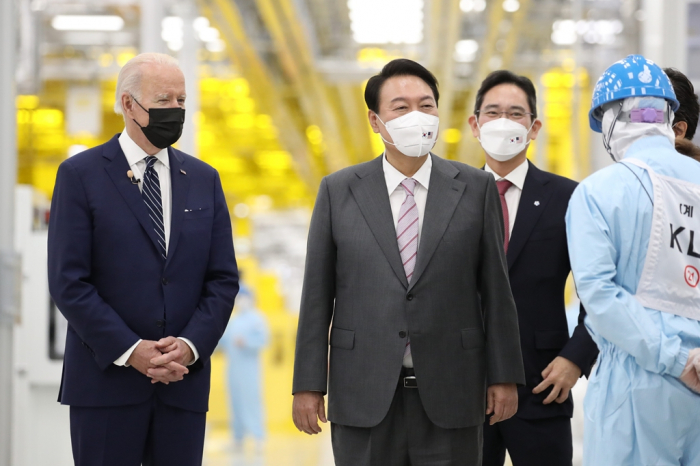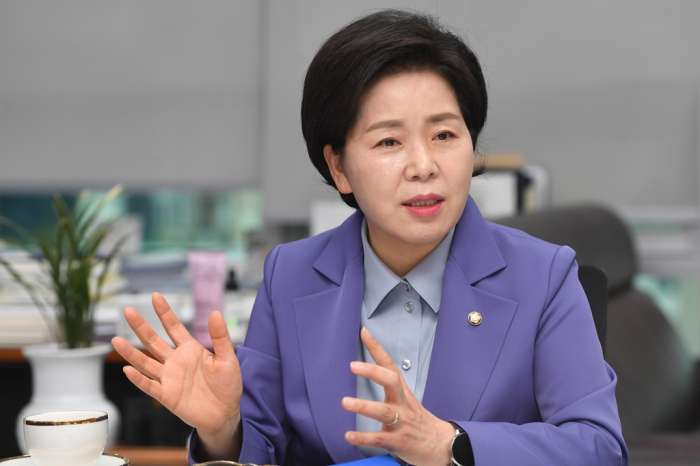Business & Politics
Korea plans to raise tax breaks for chipmakers, key industries
President Yoon ordered ministers to meet the demand for greater tax incentives, dubbing chips among Korea’s strategic assets
By Dec 30, 2022 (Gmt+09:00)
2
Min read
Most Read
LG Chem to sell water filter business to Glenwood PE for $692 million


Kyobo Life poised to buy Japan’s SBI Group-owned savings bank


KT&G eyes overseas M&A after rejecting activist fund's offer


StockX in merger talks with Naver’s online reseller Kream


Mirae Asset to be named Korea Post’s core real estate fund operator



The South Korean government plans to revise a recently passed bill aimed at supporting the country’s semiconductor sector and other key industries through increased tax incentives following a public outcry that state support measures have failed to meet expectations.
The finance ministry said on Friday it is considering raising tax breaks for chipmakers’ facility investment to at least 10% from the current 8%. The ministry plans to submit a revised bill to the National Assembly in January.
Under a revised tax law, which passed the parliament just last week, large companies are eligible for a tax credit of up to 8% from the previous 6% cap for their investment in chip manufacturing facilities. For mid-tier and small-sized firms, the tax benefit ceilings remain unchanged at 8% and 16%, respectively.
The revised tax breaks, however, are far below the ruling People Power Party’s proposal of 20% and the main opposition Democratic Party of Korea’s 10% proposal. In a Dec. 23 parliamentary session, lawmakers agreed to raise only the rate of tax incentives for large companies by two percentage points to 8%.
The ministry’s rare decision to submit an amendment to a new law that passed a week earlier comes after President Yoon Suk-yeol ordered ministers to reconsider tax benefits for chipmakers and other key industries.

“Strategic technologies, such as those in the semiconductor business, are Korea’s national security assets. I want the finance ministry, in consultation with other ministries, to consider offering further tax incentives to chipmakers and other key industries,” a presidential spokesman quoted President Yoon as telling a meeting of secretaries.
LATEST TAX BENEFIT ACT UNDER CRITICISM
Independent lawmaker Yang Hyang-ja last week criticized the government for the marginal tax credit hikes for chipmakers, urging President Yoon to keep his campaign pledge to significantly raise tax deductions on facility investments.
In August, a group of lawmakers led by Yang unveiled a new bill designed to triple the tax incentives for chipmakers, in a move to encourage more facility investment from the country's bread and butter industry.

The lawmakers had suggested the country raise the tax deduction rates for conglomerates to 20%, for medium-sized enterprises to 25%, and up to 30% for small and mid-sized companies.
The finance ministry and most conservative and liberal politicians opposed the idea, saying a significant hike in tax breaks for the semiconductor industry would lead to a drastic drop in overall corporate tax revenue.
The initial tax break proposal was aimed at creating Korea's version of Washington's CHIPS and Science Act of 2022.
Korea, home to the world’s two largest memory chipmakers, Samsung Electronics Co. and SK Hynix Inc., has promoted semiconductors as the backbone of its economy, but is slow to provide infrastructure and build a skilled workforce, said Yang, who defected from the main opposition party earlier this year.
Before joining the Democratic Party, she worked for Samsung as an executive in charge of flash memory chip development.
Write to Dong-Wook Jwa at leftking@hankyung.com
In-Soo Nam edited this article.
More to Read
-
 The Deep DiveWhy Korean chipmakers struggle with talent shortages
The Deep DiveWhy Korean chipmakers struggle with talent shortagesJun 10, 2022 (Gmt+09:00)
6 Min read -
 Korean chipmakersKorea may be backpedaling in semiconductor push: Lawmaker
Korean chipmakersKorea may be backpedaling in semiconductor push: LawmakerMay 20, 2022 (Gmt+09:00)
4 Min read -
 The KED ViewCan Samsung Electronics ever catch up to foundry leader TSMC?
The KED ViewCan Samsung Electronics ever catch up to foundry leader TSMC?May 03, 2022 (Gmt+09:00)
4 Min read -
 Korean chipmakersKorean chipmakers tumble, wipe out $13 billion in market capitalization
Korean chipmakersKorean chipmakers tumble, wipe out $13 billion in market capitalizationAug 12, 2021 (Gmt+09:00)
2 Min read
Comment 0
LOG IN


